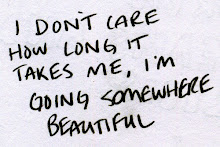With public schools suffering from large budget cuts, the education system is being forced to cut various resources and programs. Once extra-curricular and after school programs have been done away with, music and arts programs now face the threat of being cut from public schools as well. Many will argue that music and art classes are not truly academic and therefore not essential to students’ education like other subjects; however it is imperative that music and arts programs continue within schools because they are significant and beneficial parts of a student’s education and academic experience.
One of the main arguments used in ridding school systems of art and music programs are that these programs are “unnecessary” in schools because they are simply extra periods of recreational time for students like recess. Many people will argue that art and music programs do not offer students the opportunity to learn and develop any academic skills. However research has shown that students who excel in music and arts tend to possess better reasoning and academic skill and develop better social skills. A 12-month research project conducted at Stanford University found that students who participated in fine arts several times a week were, “4 times more likely to be recognized for academic achievement, 4 times more likely to participate in a math and science fair, 4 times more likely to win an award for writing an essay or poem, 3 times more likely to win an award for attendance, 3 times more likely to be elected to a class office in school.”(Americans for the Arts, 2009)
Furthermore arts and music programs not only increases students’ academic skills but self-expression, creativity, and imagination, skills that are rarely taught within standard core subjects of math, science, and history) are taught, developed, and utilized in these subject areas. Art and music classes are the only subjects where a students are constantly taught to be original and creative. During many core classes, like history and science, students are encouraged to memorize information in order to understand, unlike art and music classes which encourage students to create in order to understand.
While studies have shown students do in fact learn academic and social skills in arts and music classes, many students do find these classes as enjoyable and relaxing, allowing children to have fun and learn in a stress-free environment. Just because the students are having fun, does not necessarily mean they are not learning. Having classes like art and music, in which children believe are “easy” and fun classes, is beneficial in a students’ busy day. After sitting in a class all day and learning about less interesting subjects from a textbook, it is important for students to have a period dedicated to a more non-traditional style of learning. This gives them a break from sitting, reading, and listening and allows them to move about and actively do something. Also, many children find art and music more interesting than other subject material. This interest helps keep students motivated during the school day.
Lastly, many students who do not excel in traditional subjects may be passionate about fine arts – these classes and programs give students the opportunity to be exposed to difference areas in which their passions lie. Many students may find that their calling may be for one of the fine arts and that they wish to pursue a career in it. Despite the stereo-type of the “starving artist”, statistics show that “the arts produce jobs generating an estimate $37 billion with a return of $3.4 billion in federal income taxes”(American Arts Alliance Fact Sheet, October 1994).
